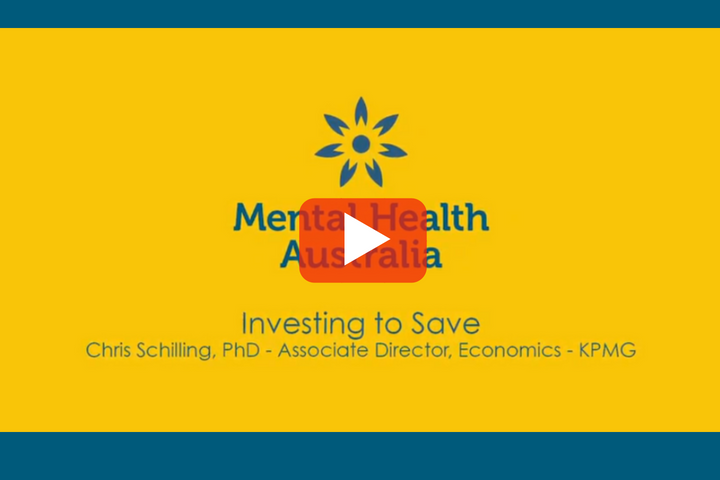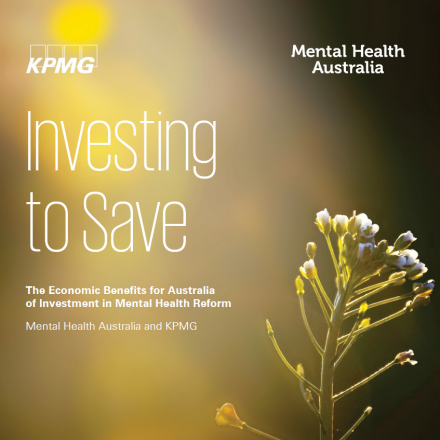CEO Update - Homelessness in Australia, an unnatural disaster

Speaking frankly... 
Homelessness in Australia, an unnatural disaster
I’m glad we think about homelessness at winter time. But it also reinforces some unhelpful stereotypes. Insecure housing is with us all year round, and summer is no comfort. In Australia, the homelessness toll now exceeds even our worst natural disasters, but unlike so many natural disasters, homelessness is frequently invisible.
The 2016 Census showed that around Australia a total of 116,427 people were homeless. Or to put it another way, for every 10,000 people living in Australia, 50 had no adequate or permanent dwelling to sleep in. They included families with children, young people, elderly, single adults, pregnant women, people fleeing family violence situations and people with disabilities… Some of the country’s most vulnerable.
Nearly two years on from the 2016 census, with Australia’s population about to tick over the 25 million mark, our actual number of homelessness today, the first day of winter 2018, is probably closer to 125,000. Not far off the current population of Darwin (146,000).
Why is that relevant? Because 44 years ago when a natural disaster in Cyclone Tracy hit the Northern Territory capital it left some 25,000 homeless. At the time, governments, businesses and the community rallied and were able to find $800 million dollars (nearly $4.5 billion today) to reconstruct and repair more than 2,800 homes.
The impact of the disaster was immediate, it was visible, it needed to be fixed. And so it was.
For comparison, it would take five Cyclone Tracy's to generate Australia's present-day homeless population. Yet the response is nowhere near as sympathetic, as vigorous, as prompt or impactful. So what will it take for governments, business and the community, to mobilise around the issue of homelessness in the same way they did in the aftermath of Cyclone Tracy?
In our recent report Investing to Save – the economic benefits for Australia of investment in mental health reform we focused heavily on homelessness, its impact on mental health, and how well-targeted investment could provide strong economic benefit, not the mention the social benefits.
To highlight this, let’s take directly from the Investing to Save report:
Recommendation 2.1 Adopt a Housing First model for young people aged 15 to 24 with a mental illness at risk of homelessness.
Why this recommendation?
- Homelessness generates significant personal and economic costs. A conservative estimate is that homelessness costs $626 million a year in 15 to 24 year olds.
- For every $1 spent on Housing First models, $3 is generated in the short term and $6.70 is generated in the longer term – this is supported by a strong evidence base that Housing First models work.
- This intervention requires a major up-front investment, but generates significant savings. If 50 per cent of the cohort were provided with this intervention, a $0.5 billion investment would generate $1.5 billion in savings in the short term and $4.8 billion in the long-term.
The economic evidence is clear, and with a major up-front investment there are savings of $1.5 billion over the first one to two years, and then $4.8 billion in the long-term.
Perhaps those savings could assist us in addressing a future a natural disaster? But more importantly, we could ease the burden on those 116,427 people who were homeless on August 9 2016.
Because a home is so much more than just a roof over one's head. A home is security, stability, privacy, safety and a sense of belonging.
More than that, a place to call home is both a human right and platform for better mental health.
The first day of winter is a helpful reminder.
Warm regards.

Frank Quinlan
Chief Executive Officer
Allison Kokany Scholarship for consumers & carers
Many of us lost a friend and a fellow advocate this week when we lost Ally Kokany to cancer. Ally was a familiar face to many at the NMHCCF and National Register, and was part of the team that offered me an "induction" when I first joined Mental Health Australia. A tireless advocate, Ally could none the less always find the humour and light in a situation. Ally, you will be sorely missed, but we will not give up your fight!
It was nice to hear that WentWest is establishing a scholarship to honour the memory of one of their beloved staff members, in Ally. As the consumer consultant for the Western Sydney Primary Health Network she was a key team member of the Partners in Recovery program. The Allison Kokany Scholarship will assist consumers and carers to continue her legacy of making change.
Save the dates: AGM, Grace Groom Memorial Oration and Parliamentary Advocacy Day
Mental Health Australia will hold its Annual General Meeting and Grace Groom Memorial Oration in Canberra on Monday 26 November followed by the Parliamentary Advocacy Day and Members Policy Forum at Parliament House on Tuesday 27 November. To register your interest for any of these events, please email Lachlan.Searle@mhaustralia.org
Have you read Investing to Save yet?
One month on from our launch of Investing to Save – The economic benefits for Australia of investment in mental health reform, the feedback on the report is still very positive. If you are yet to read the report, you can download it here or if you are pushed for time, watch this short highlights video of the report's key recommendations, presented Chris Schilling from KPMG...
Next Week
On Monday, I will be participating in a teleconference with Antonia Albanese of the NDIA and McKinsey & Company to discuss the Independent Pricing Review.
On Tuesday I will travel to Brisbane to co-chair the meeting of the PHN Advisory Panel on Mental Health.
Later in the week we will be interviewing for new employees! An exciting time for Mental Health Australia - watch this space.
Mental Health Australia Member Profiles
The Dietitians Association of Australia (DAA) is the national association of the dietetic profession, with branches in each state and territory. DAA is strongly committed to providing excellent services, support, resources and leadership. DAA's vision is to provide leadership in dietetics, food and nutrition for healthier people and healthier nations. DAA works to provide strategic leadership in food and nutrition and advancing the professional interests of our members.
Website https://daa.asn.au/(link is external)
Carers ACT is a not-for-profit organisation and the peak body for carers in the ACT. Their purpose is to nurture, connect and empower carers through a wide range of practical, emotional and social programs. Carers ACT provide informal, unpaid help with daily living activities, and is a proud member of the National Network of Carers Associations.
Website - www.carersact.org.au
News
New research hub focused on prevention
Earlier this week, Health Minister Greg Hunt MP launched a new research hub focused on preventing anxiety and depression. The federal government pledged $5 million in support of the Hub; a collaboration between the Black Dog Institute and Everymind. "The Prevention Hub is about delivering practical applied research which effectively means better access to prevention [for] Australians, " Mr Hunt said.
More support for Canberrans living with mental illness
In an ACT Government 2018 pre-Budget announcement, ACT Minister for Mental Health Shane Rattenbury promised an additional $22.8 million over four years to provide accommodation for Canberrans struggling with mental health problems. This includes establishing 24-hour supported accommodation for people with complex mental health needs; and increased funding for local support services to meet growing demand.
45,000 Australians with disability receive support for first time
New figures released this week show that more than one quarter of the 160,000 Australians now benefiting from the National Disability Insurance Scheme (NDIS) are receiving support for the first time. The latest NDIS Quarterly Report shows 162,223 Australians are now benefitting from the NDIS, and of this number 44,945 had not received support prior to entering the Scheme.
Reminders
National Homelessness Conference
The Australian Housing and Urban Research Institute in partnership with Homelessness Australia will convene the National Homelessness Conference 2018 in Melbourne on 6 - 7 August 2018, part of Homelessness Week 2018. The theme is ‘Ending homelessness together’ and the program will enable delegates to learn about a broad range of issues related to homelessness including housing models; responding to domestic and family violence; working with clients with disability, mental health issues and people leaving custody; social and affordable housing policy; and financial inclusion.
Mental health education for community groups
Wellways is on a mission to build a more inclusive and accepting world, from the ground up. They are providing free community workshops to help build an understanding of mental illness at schools, sporting groups and in workplaces. They are also looking for groups and organisations interested in hosting a Well Together workshops. If you are interested in building a more supportive and inclusive community, take advantage of this free initiative.
Google Impact Challenge for non-profit innovators & social entrepreneurs
The Google.org Impact Challenge supports the next generation of Australians whose innovative ideas for change are making an impact locally and globally. This year, the Impact Challenge will award $5.5M to non-profit innovators and social entrepreneurs using technology to tackle our biggest social challenges. Submit your application before 6 July 2018
ATSI Early Career Health Professionals scholarship
The Australian Healthcare and Hospitals Association (AHHA), HESTA Australia and the Lowitja Institute are proud to announce that applications for the Aboriginal and Torres Strait Islander Early Career Health Professionals Scholarship are now open. The scholarship supports career development of up-and-coming Aboriginal and Torres Strait Islander health professionals by providing them with the opportunity to participate at the 42nd World Hospital Congress.
Life in Mind stakeholder consultations
Mental Health Australia members are invited to participate in an online survey to guide the ongoing development of Life in Mind, a new website that provides national leadership to support the development of safe and effective messaging about suicide prevention. The closing date for the survey is 15th June 2018.
StigmaWatch: Raising awareness around schizophrenia
The inaccurate, unbalanced and sensationalist reporting of schizophrenia can lead to increased stigma and a decrease in help-seeking behaviour. As a follow-up to Schizophrenia Awareness Week earlier in May, SANE Australia has put together a series of factsheets, articles, personal stories and videos to increase understanding of this very complex mental illness. Access these resources, as well as the inspirational story of SANE Ambassador Sandy Jeffs told in partnership with The Age, click the link below:
iGen: Understanding the connected generation
Orygen and UNSW’s Centre for Ideas are pleased to invite you to an important conversation about the future of young people and the impact technology is having on their lives. Join Dr Jean Twenge, author of iGen: Why Today’s Super-Connected Kids Are Growing Up Less Rebellious, More Tolerant, Less Happy–and Completely Unprepared for Adulthood, and a panel of experts, for a discussion facilitated by Hamish Macdonald at the Sydney Opera House Studio on Thursday 19 July 2018, from 6:30 pm.








